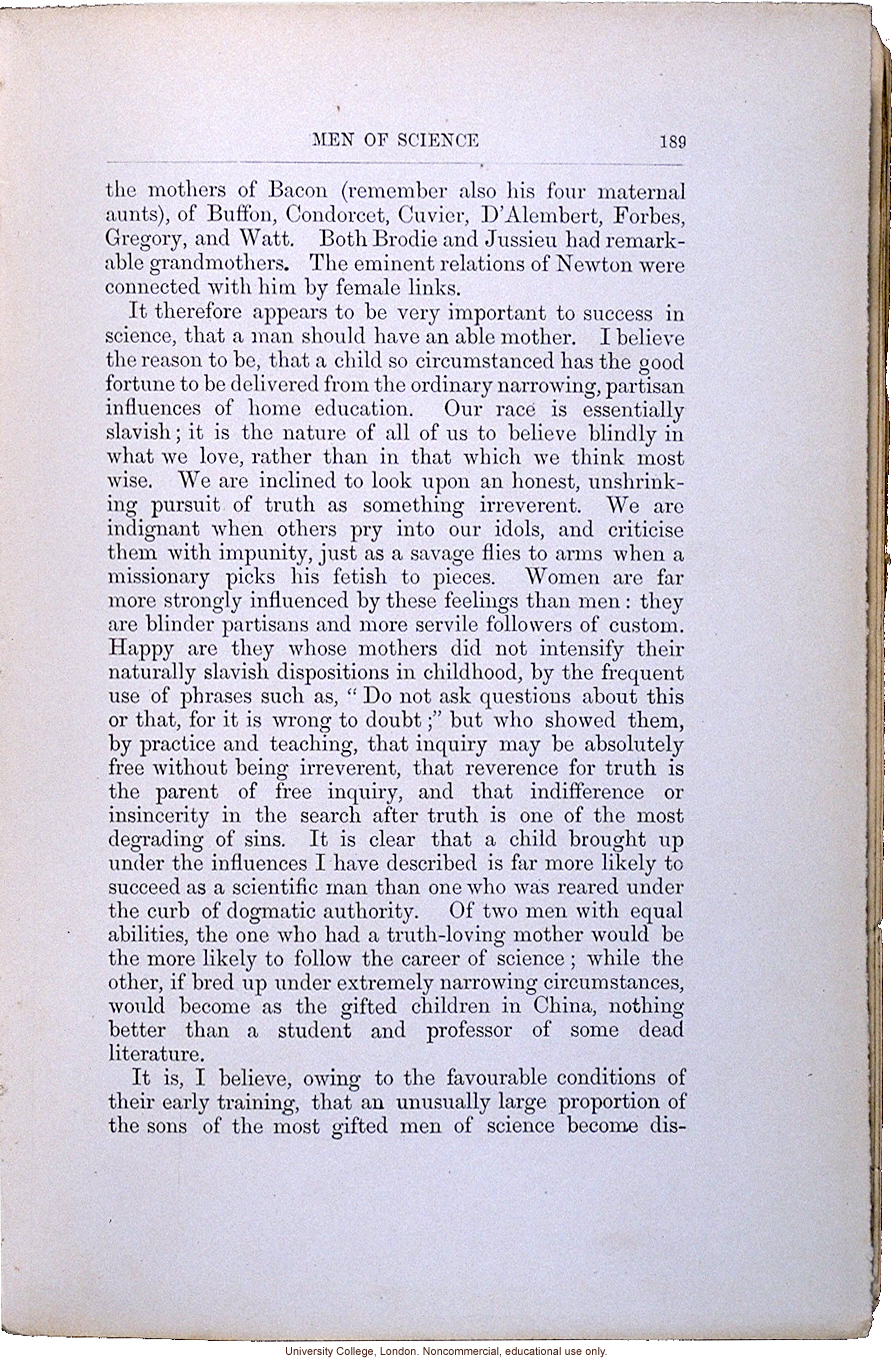Men of Science 189
[hairline rule page width]
the mothers of Bacon (remember also his four maternal aunts), of Buffon, Condorcet, Cuvier, D'Alembert, Forbes, Gregory, and Watt. Both Brodie and Jussieu had remarkable grandmothers. The eminent relations of Newton were connected to him by female links.
It therefore appears to be very important to success in science, that a man should have an able mother. I believe the reason to be, that a child so circumstanced has the good fortune to be delivered from the ordinary narrowing, partisan influences of home education. Our race is essentially slavish; it is the nature of all of us to believe blindly in what we love, rather than in that which we think most wise. We are inclined to look upon an honest, unshrinking pursuit of truth as something irreverent. We are indignant when others pry into our idols, and criticise[sic] them with impunity, just as a savage flees to arms when a missionary picks his fetish to pieces. Women are far more strongly influenced by these feelings than men: they are blinder partisans and more servile followers of custom. Happy are they whose mothers did not intensify their naturally slavish dispositions in childhood, by the frequent use of phrases such as, "Do not ask questions about this or that, for it is wrong to doubt;" but who showed them, by practice and teaching, that inquiry may be absolutely free without being irreverent, that reverence for truth is the parent of free inquiry, and that indifference or insincerity in the search after truth is one of the most degrading of sins. It is clear that a child brought up under the influences I have described is far more likely to succeed as a scientific man than one who was reared under the curb of dogmatic authority. Of two men with equal abilities, the one who had a truth-loving mother would be the more likely to follow the career of science; while the other, if bred up under extremely narrowing circumstances, would become as the gifted children in China, nothing better than a student and professor of some dead literature.
It is, I believe, owing to the favourable conditions of their early training, that an unusually large proportion of the sons of the most gifted men of science become dis-
[end]


